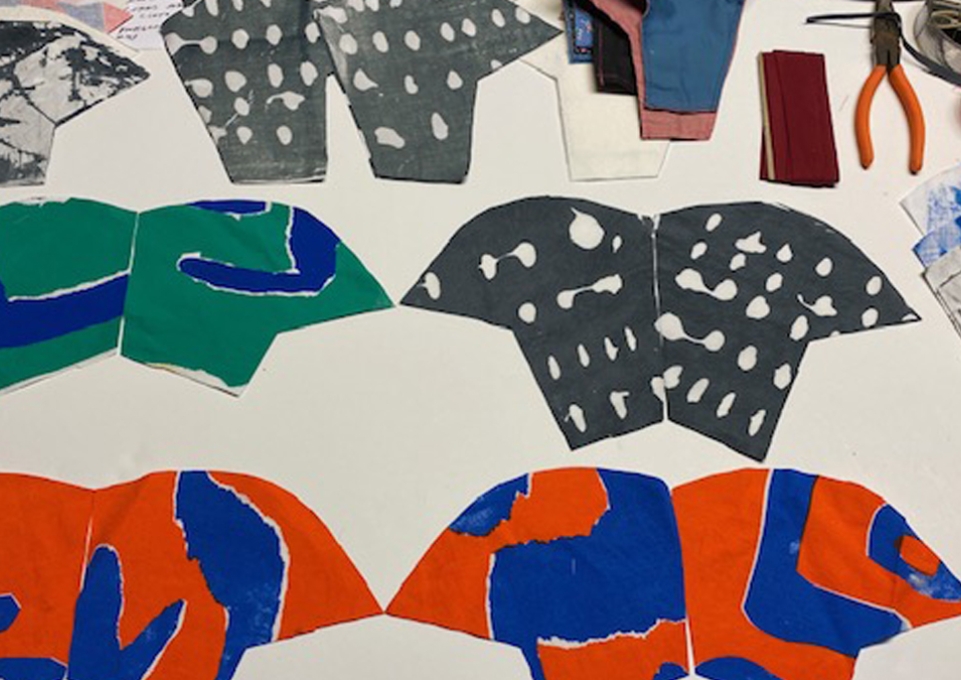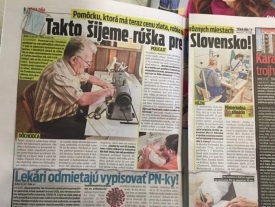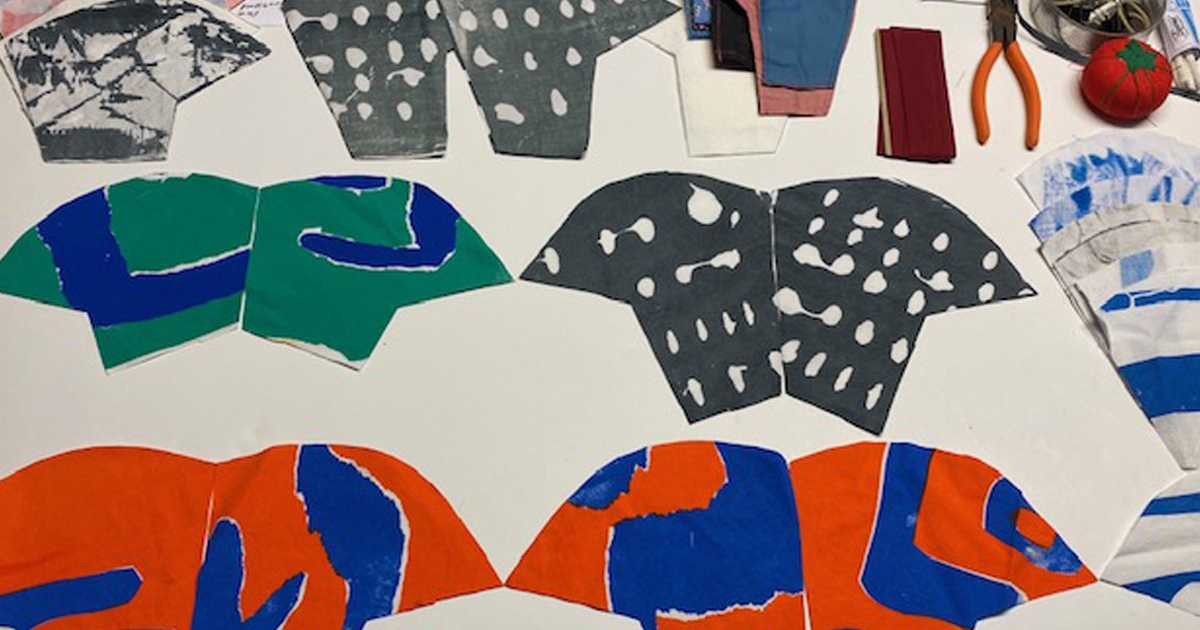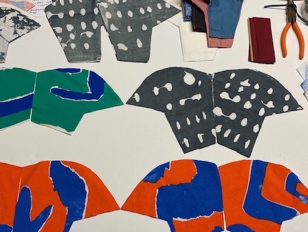
Three weeks ago, Jozef Bajus, Buffalo State College associate professor of fibers, received a newspaper clipping from his sister. The March 20 story and photograph in the publication Nový Čas prominently featured their almost 87-year-old father, a tailor in their eastern Slovakia hometown of Kežmarok, sewing face masks for medical personnel.
 “It inspired me,” said Bajus, an award-winning mixed-media artist who joined the Buffalo State art and design faculty in 2002. “The next day I started designing and making my own masks.”
“It inspired me,” said Bajus, an award-winning mixed-media artist who joined the Buffalo State art and design faculty in 2002. “The next day I started designing and making my own masks.”
U.S. hospitals, especially in New York state, are in dire need of face masks to protect doctors and nurses who are treating the deluge of patients suffering from the coronavirus. The shortage has resulted in citizens with sewing and design skills, such as Bajus, stepping up and producing masks for medical use. In addition, the Centers for Disease Control and Prevention last week recommended that everyone wear cloth face masks in public, which makes the need for homemade masks even more critical.
“Europe was ahead of us in this effort,” said Bajus, who got busy making designs and putting his home sewing machine to use. He said he’s now able to produce a mask in 15 minutes.
Bajus featured his mask designs on his personal Facebook page, and Michael Tunkey, principal at the Buffalo architecture firm CannonDesign, noticed them. He asked Bajus to join a group of designers in the MadetoAid coalition he founded to make masks for Western New York health-care workers and patients.
Bajus agreed. He also assigned students in his three upper-level fibers courses to make masks as part of remote instruction that began March 30, and they too have been donating masks for the MadetoAid coalition.
The coalition includes many local partners, such as the University at Buffalo School of Architecture and Planning and Fisher-Price. These masks do not require elastic, which is also in short supply right now, but instead rely on 3-D printed clips to hold them in place.
The group has delivered more than 400 masks to Evergreen Health Services, which provides medical, supportive, and behavioral services to individuals and families in Western New York, especially those living with chronic illnesses or who are underserved. Last week, they donated an additional 120 to masks to Haven House, a local organization that offers emergency shelter and other services to victims of domestic violence.
Bajus said his students are excited by the mask project because they know it makes a difference. At this point in the pandemic, almost everyone knows of someone affected, he said.
“One of my students had someone in her household test positive,” Bajus said. “Although her relative is OK now, she saw how scary it was for her family. They all want masks now.”
He expects to continue making masks throughout the coming weeks. And he just added a new design for smaller masks to fit young children.
“Kids need masks, too,” he said. “I’m planning to send a few to my grandkids in North Carolina and make the rest available to local children. I will make them with some fun, kid-appealing fabric.”
In the midst of this flurry of work, Bajus recently spoke with his father.
“I told him he inspired me,” he said. “He was surprised and, I guess, proud to have a son who is walking in his footsteps.”



